
Blood Research
Scope & Guideline
Innovating Insights into Blood Disorders and Treatments
Introduction
Aims and Scopes
- Hematologic Malignancies and Disorders:
This area includes research on various types of blood cancers such as leukemia, lymphoma, and myeloma, focusing on their pathophysiology, diagnosis, and therapeutic strategies. - Coagulation and Hemostasis:
Studies in this domain explore disorders of coagulation, including hemophilia, thrombotic disorders, and the underlying mechanisms of hemostasis, as well as innovative treatment approaches. - Transfusion Medicine:
Research related to blood transfusion practices, including safety, efficacy, and management of transfusion-related complications, is a significant focus. - Genomics and Molecular Biology:
The journal covers advancements in genomic technologies and molecular biology that enhance understanding of blood disorders and inform treatment strategies. - Clinical Trials and Real-World Evidence:
The publication emphasizes the importance of clinical trials and observational studies that provide real-world evidence on treatment outcomes in hematology. - Patient Management and Supportive Care:
Research on multidisciplinary approaches to managing patients with hematologic conditions, including supportive care measures, is highlighted.
Trending and Emerging
- Novel Therapeutics and Targeted Therapies:
There is a growing emphasis on research related to novel agents and targeted therapies, particularly in hematologic malignancies, reflecting advancements in personalized medicine. - Immunotherapy and CAR T-Cell Therapy:
Publications increasingly focus on immunotherapy approaches, including CAR T-cell therapy, showcasing innovative treatment strategies for resistant hematologic cancers. - Microbiome and Its Impact on Hematologic Disorders:
Emerging research is exploring the role of the microbiome in hematologic disorders, indicating a shift towards understanding the interplay between gut health and blood disorders. - Real-World Evidence and Patient-Centered Outcomes:
There is a trend towards emphasizing real-world evidence studies that assess treatment outcomes from a patient-centered perspective, including quality of life measures. - Genomic Profiling and Precision Medicine:
The integration of genomic profiling in clinical practice is gaining traction, with studies focusing on how genetic variations influence treatment responses and disease progression.
Declining or Waning
- Traditional Chemotherapy Approaches:
There is a noticeable reduction in studies focusing solely on traditional chemotherapy regimens, as newer targeted therapies and immunotherapies gain prominence. - General Reviews on Hematology:
The frequency of broad, non-specific reviews on hematology topics has decreased, indicating a shift towards more specialized and focused research. - Epidemiological Studies without Specific Focus:
General epidemiological studies that do not contribute directly to therapeutic advancements or clinical practices are appearing less frequently.
Similar Journals

Experimental Hematology & Oncology
Empowering Discovery in Hematology and OncologyExperimental Hematology & Oncology is a premier journal published by BMC, dedicated to advancing knowledge in the fields of hematology, oncology, and cancer research. Since its inception in 2012, this Open Access journal has emerged as a vital resource for researchers and healthcare professionals, fostering the dissemination of high-quality research that enhances our understanding of blood disorders and malignancies. With impressive rankings in Quarters 1 of key categories including Cancer Research, Hematology, and Oncology, it holds significant prestige, evidenced by its Scopus rankings: #42/404 in Medicine (Oncology) and #17/137 in Medicine (Hematology). The journal aims to publish cutting-edge studies, reviews, and perspectives that contribute to the evolution of therapeutic strategies and innovative treatment modalities. Researchers and practitioners alike will find this journal indispensable for staying at the forefront of breakthroughs in hematological and oncological research.
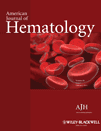
AMERICAN JOURNAL OF HEMATOLOGY
Connecting Scholars to Shape the Future of HematologyAmerican Journal of Hematology, published by Wiley, stands as a premier outlet for the dissemination of cutting-edge research in the field of hematology. With a commendable impact factor and ranked #9 out of 137 in the Scopus medicine category, this journal has established a robust presence since its inception in 1976. Operating in the Q1 quartile for hematology, it serves as a crucial resource for researchers, clinicians, and students dedicated to understanding blood disorders and advancing treatment methodologies. While the journal does not currently offer open access options, it remains highly regarded for its rigorous peer-review process and impactful contributions to the scientific community. With coverage extending into 2024, the American Journal of Hematology is committed to fostering innovation and collaboration within the hematological sciences.
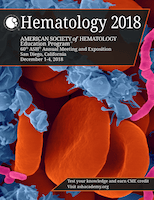
Hematology-American Society of Hematology Education Program
Elevating Standards in Hematology EducationHematology-American Society of Hematology Education Program is a premier peer-reviewed journal dedicated to advancing the field of hematology through comprehensive educational content. Published by the American Society of Hematology, this journal plays a crucial role in disseminating knowledge to researchers, clinicians, and students in hematology and related disciplines. With an impressive Q1 status in the field, it ranks among the top journals at the forefront of hematological research, as evidenced by its 60th percentile ranking in Scopus' Medicine - Hematology category. Although it does not offer open access, the journal provides invaluable insights and educational resources from leading experts, focusing on the latest advancements, treatment protocols, and evolving understanding of blood disorders. Covering a wide range of topics, from basic research to clinical applications, this journal is essential for anyone seeking to deepen their expertise and stay informed on the latest developments in hematology. For further engagement, readers can access insightful articles published since 2001, ensuring a rich repository of knowledge for ongoing research and clinical excellence.
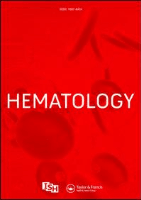
Hematology
Unlocking Potential: Pioneering Research in Blood DisordersHematology is a distinguished open-access journal published by Taylor & Francis Ltd, dedicated to advancing research and knowledge in the field of hematology. Established in 1996, the journal has continually evolved to meet the needs of a growing community of researchers and practitioners, providing a vital platform for disseminating innovative findings and clinical insights. With its impact factor reflecting a robust commitment to quality scholarship, Hematology has achieved a respectable position in its category as evidenced by its Q3 ranking in the Hematology category and ranks #85 out of 137 in the Scopus index, which positions it in the 38th percentile among its peers. The journal’s open-access policy, initiated in 2019, further enhances its reach and accessibility, allowing a broad audience of professionals, researchers, and students to engage with high-quality research without barriers. By covering a wide range of topics related to blood disorders, treatment methodologies, and emerging therapies, Hematology stands as an essential resource for those dedicated to innovation in this critical area of healthcare.
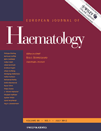
EUROPEAN JOURNAL OF HAEMATOLOGY
Transforming Hematology Through Rigorous ResearchEUROPEAN JOURNAL OF HAEMATOLOGY, published by Wiley, serves as a vital resource for experts in the field of hematology, focusing on the latest advancements in blood disorders and therapies. With an ISSN of 0902-4441 and an E-ISSN of 1600-0609, this esteemed journal has been disseminating knowledge since 1986 and continues to thrive, converging its visionary approach through to 2024. Notably, it holds a distinguished Q2 ranking in Hematology and an impressive Q1 ranking in the broader category of Medicine (miscellaneous) as of 2023, highlighting its significant contribution to the scientific community. With a Scopus rank of #45/137 and a 67th percentile in the field, the journal is recognized for its rigorous peer-reviewed research, making it an indispensable publication for researchers, practitioners, and students aiming to stay at the forefront of hematological studies. Though not an open-access journal, it ensures broad accessibility to critical findings via its subscription model, thus fostering an informed and globally engaged audience.
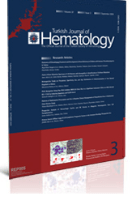
Turkish Journal of Hematology
Advancing hematological research for a healthier tomorrow.Turkish Journal of Hematology is an esteemed publication dedicated to advancing the field of hematology, producing influential research since its inception in 1999 under the auspices of GALENOS PUBL HOUSE. With an Open Access model, it facilitates widespread dissemination of knowledge, allowing researchers, clinicians, and students to stay abreast of the latest developments in blood disorders and treatments. With an ISSN of 1300-7777 and an E-ISSN of 1308-5263, the journal holds a commendable position in the academic community, evidenced by its 2023 Q3 ranking within the hematology category and its standing at #80 out of 137 in the Scopus database, placing it in the 41st percentile. Covering a wide scope of topics within hematology, this journal serves as a critical resource for disseminating innovative research and clinical practices pertinent to the ongoing challenges faced in this vital area of medicine. With its continuous publication until 2024, Turkish Journal of Hematology remains a beacon for enhancing the understanding and treatment of hematological conditions within the Turkish and global medical communities.

Blood Transfusion
Innovating Hematology for Better Patient Outcomes.Blood Transfusion is a leading journal in the fields of Hematology, Immunology, and Medicine, published by SIMTIPRO SRL in Italy. With its ISSN 1723-2007, the journal has established a significant presence in the academic community, as evidenced by its positioning within the Q2 category in Hematology and Medicine (miscellaneous) and Q3 in Immunology and Allergy for 2023. Notably, it ranks #38 out of 137 in the Hematology category, showcasing its impactful contributions to research and practice. Operating under a traditional publishing model, this journal provides valuable insights into advances in blood transfusion science, ultimately aimed at enhancing patient care and outcomes. Spanning from 2003 to 2024, the scope of Blood Transfusion covers a wide range of topics related to hematological and immunological research, making it an essential resource for researchers, healthcare professionals, and students engaged in these critical fields.

Hemato
Pioneering Insights for Blood-Related DisciplinesHemato is a pioneering open-access journal dedicated to the field of hematology, published by the esteemed MDPI from its base in Basel, Switzerland. Launched in 2020, this journal aims to provide a platform for researchers, clinicians, and professionals to share significant findings and advancements in blood-related disciplines over a converged timeframe until 2024. With a commitment to disseminating high-quality research, Hemato seeks to foster collaboration and innovation in hematological studies, showcasing original articles, reviews, and clinical studies that contribute to expanding knowledge in this vital area. As an open-access journal, it promotes accessible scholarship, ensuring that groundbreaking research reaches a broad audience, thereby enhancing the impact on the global health community.
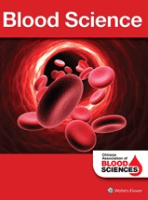
Blood Science
Advancing Hematology Through Innovative ResearchBlood Science is a distinguished peer-reviewed journal published by Lippincott Williams & Wilkins, focusing on the dynamic field of hematology. Since its inception, the journal has aimed to disseminate high-quality research and innovative findings that contribute to our understanding of blood-related health issues. With the ISSN 2543-6368, it offers a platform for academic discussions and breakthroughs in various subfields including hematopathology, blood disorders, and transfusion medicine. As of 2023, Blood Science is ranked in the third quartile (Q3) within the hematology category, indicating a burgeoning influence among its peers, with a Scopus rank of #101 out of 137 journals, placing it in the 26th percentile. Although it is not an open-access journal, it provides essential insights and valuable data for researchers, healthcare professionals, and students alike, enhancing the collective knowledge and practices in hematology. With a publication period spanning from 2019 to 2024, Blood Science remains committed to fostering the advancement of blood science research and enhancing patient care methodologies.
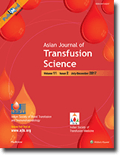
Asian Journal of Transfusion Science
Unlocking knowledge for safer transfusion practices.Asian Journal of Transfusion Science, published by WOLTERS KLUWER MEDKNOW PUBLICATIONS, is a prominent open-access journal dedicated to the interdisciplinary fields of hematology and immunology. With an ISSN of 0973-6247 and E-ISSN 1998-3565, it serves as a crucial platform for researchers, clinicians, and students from around the globe, facilitating the dissemination of high-quality, peer-reviewed research. Established in 2007, the journal has consistently aimed to advance scientific knowledge in transfusion practices, enhancing patient care and safety in transfusion medicine. Despite its recent categorization in the Q4 quartile within both Hematology and Immunology, the journal is making strides toward greater visibility in the academic community, with plans for expanded reach and increased citation impact. With its commitment to open-access publishing, the Asian Journal of Transfusion Science ensures that invaluable research findings are readily accessible to all stakeholders, thereby bolstering collaborative efforts in transfusion science and related disciplines.